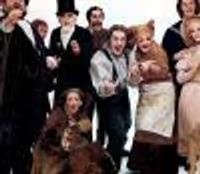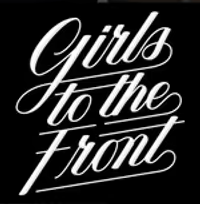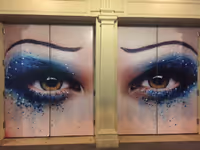THE INHERITANCE - Reviews
#26THE INHERITANCE - Reviews
Posted: 11/18/19 at 2:10am
A Director said: "Why not write a play about Latinx gays, Matthew Lopez?"
Okay, that’s where the line blurs and it starts to get unfair. Matthew Lopez should not be restricted to write only about his ethnicity. Nor should he be expected to. Nor should any playwright be confined in such a way.
Yes, Lopez had a great opportunity to spotlight all the colors of the wind. Or at least a few of them. But he chose to spotlight white people. Yes, I think that’s a failure. But if you go deeper, should he have included lesbian characters, trans characters, non-binary characters? How many things can one play be about? It’s already a hurricane the way it is. But asking him to keep his art within his race.....that’s not what art is.
He chose to write a play about white people. Like it or not. The play got to the West End, the play got to Broadway. We can at least do him the courtesy of acknowledging his success in having his work presented in the two most desired and revered theatrical arenas in the world.
JBC3
Broadway Star Joined: 4/9/17
#27THE INHERITANCE - Reviews
Posted: 11/18/19 at 3:26am
"We can at least do him the courtesy of acknowledging his success in having his work presented in the two most desired and revered theatrical arenas in the world."
His plays are being reviewed by almost every major publication that covers theater in NYC which is a significant form of acknowledgement that he has indeed "made it."How much more courtesy needs to be extended when at this stage the entire point is to critique the production and talk about what works and what doesn't?
BWAY Baby2
Broadway Star Joined: 11/10/14
#28THE INHERITANCE - Reviews
Posted: 11/18/19 at 4:21am
I despise this era of everything seen through the prism of color- the show should be judged on its merits- period. I loved it.
#30THE INHERITANCE - Reviews
Posted: 11/18/19 at 6:49am
BWAY Baby2 said: "I despise this era of everything seen through the prism of color- the show should be judged on its merits- period. I loved it."
‘A FU*KING MEN’
#31THE INHERITANCE - Reviews
Posted: 11/18/19 at 7:09am
I think Clever 2's take on Brantley's review is spot on. I could feel a certain strain as he spends so much space on the content and reserves his final verdict for a rather negative conclusion. Because the review doesn't itemize his problems in multiple paragraphs, but lands with that thud at the end, it will be called mixed to positive by many. But it sounds as Clever 2 states as if Brantley didn't want to be the guy who dumps on this piece. I usually try to avoid getting inside reviewers' heads, but in this case, the review invites that level of discernment. It's a windy review that doesn't want to sound unkind. But then that shake of the head concludes it, which is far from "mixed."
#32THE INHERITANCE - Reviews
Posted: 11/18/19 at 7:12am
Wow, this mirrors what two friends of mine said. Having read the published play, I thought they were unnecessarily unkind.
Robert Hofler, The Wrap: "The Inheritance" isn't a great play or even a very good play, but Lopez's opus is compellingly watchable in the way that old so-bad-they're-good movies are: Finger-snapping one-liners and dramatic fireworks explode throughout as logic and character development are abandoned. At the helm is the perfect director, Stephen Daldry, the theater's version of Douglas Sirk. If anyone knows how to make pulpy dialogue an even deeper shade of purple, it's Daldry. Despite the play's lengthy running time, you will be riveted watching this lurid, weepy, pandering, derivative, and very grand soap opera.
#33THE INHERITANCE - Reviews
Posted: 11/18/19 at 7:20am
To those awaiting an LGBTQ+ press response, Towelroad, which mirrors some of the dialog in this thread about the demographic narrowness of the scope.
"...Lopez attempts the bold sprawl of a novel without plumbing the same psychological depths, and faces the formal demands of a near-seven-hour play without generating sufficient stakes or forward momentum. As the actors toggle between narrating their story and embodying it, the stage fills and fills with lovely words, but they rarely add up to blood-pounding drama.
"The world these men inhabit is recognizable if rarified; they shuttle between Manhattan and the Hamptons, flit from the Whitney Museum through literature-stuffed shelves at The Strand. The homogeneity of their cultural elitism surpasses personal differences — regardless of race or upbringing, they all have opinions on Ravel’s “String Quartet in F Major.” Often, they operate as a sort of Greek chorus who speak from a unified point of view. When talk turns, at various brunches and dinner parties, to contemporary politics or issues facing broader queer communities unrepresented here, it’s intellectual lip service ultimately untethered to plot..."
"An ill-fated, messy romance between two lead narrators serves as a primary through-line. One (played by Andrew Burnap) is brash and a bit conceited, partial to loud prints and crop tops. He ironically proclaims himself a “child of privilege,” but has spent his life running from difficult beginnings. Though he’s written a play about it, we don’t learn his backstory until it’s too late to win fresh sympathy. The other (Kyle Soller) is an actual beneficiary of both inordinate privilege and serendipity; he’s evicted from an inherited rent-controlled three-bedroom into the arms of a billionaire (standout vet John Benjamin Hickey). The biggest obstacle he faces is not recognizing that, underneath his cardigans, he’s beautiful and extraordinary. He eventually does, not to spoil the suspense."
https://www.towleroad.com/2019/11/inheritance-review/
#34THE INHERITANCE - Reviews
Posted: 11/18/19 at 9:59am
I don't think this was ever going to be a production the Times would give a bad review, and there is definitely a sense of Brantley pulling his punches.
(If I had to guess, I would wager that Green would have been more positive).
chanel
Broadway Star Joined: 1/28/04
#35THE INHERITANCE - Reviews
Posted: 11/18/19 at 11:00am
Very positive, while referencing some of the sources it draws from.
http://www.newnownext.com/the-inheritance-review-broadway/11/2019/
#36THE INHERITANCE - Reviews
Posted: 11/18/19 at 1:03pm
JBC3 said: ""We can at least do him the courtesy of acknowledging his success in having his work presented in the two most desired and revered theatrical arenas in the world."
His plays are being reviewed by almost every major publication that covers theater in NYC which is a significant form of acknowledgement that he has indeed "made it."How much more courtesy needs to be extended when at this stage the entire point is to critique the production and talk about what works and what doesn't?"
There is a "Deja-vu-all-over-again" aspect to The Inheritance focusing on urbane urban white men as its subject matter. Like it or not, it's a familiar trope. From The Boys in the Band to Longtime Companion, even, in a way, to Angels in America (which I thought was terrific) it's just a too-familiar milieu for some. I haven't seen The Inheritance, but when I ask myself if I want to sit through its 6 1/2 hour length, that milieu is what gives me pause. I'm not judging the merits of the play itself here, but when people are deciding what to see on Broadway, these are things that matter.
#37THE INHERITANCE - Reviews
Posted: 11/18/19 at 1:54pm
Why not write a play about Latinx gays, Matthew Lopez?
What an eye rolling question. He has included every kind of person you possibly could through his brilliant work. His first play (The Whipping Man) was about two recently freed slaves, it was very successful and widely produced. His second play (Somewhere) featured a cast that was 99% Latino, and it was about poor immigrants struggling in America. His third play (Reverberation) was about a young, gay man afraid to go out into the world because of the horrendous violence that LGBTIA+ people face. Perhaps he wanted to write about something he never has before, which is about gay, mostly white, affluent New Yorkers.
People write about what they want, and they should never be limited by their upbringing, race, etc. He is a brilliant playwright and I loved this show. If you don't care for his work, don't see it, but he is one of the best playwrights of his generation, so you are missing out. He doesn't owe you a show about what you want to see. Write it yourself if it means that much to you.
SouthernCakes
Broadway Legend Joined: 7/29/19
#38THE INHERITANCE - Reviews
Posted: 11/18/19 at 2:29pmIs there anything in the text that would identify the characters as white? It seemed to me more of a casting decision. And prob because the show was first produced in the UK.
#39THE INHERITANCE - Reviews
Posted: 11/18/19 at 3:01pm
After reading all the reviews my takeaway is that this is a decent play, somewhat overwritten and overlong, but entertaining. I don’t think ticket sales are going to jump.
I also think of Kushner’s plays as very white and written for white intellectuals. Nothing wrong with that, just how I’ve always felt.
Owen22
Broadway Legend Joined: 2/24/11
#40THE INHERITANCE - Reviews
Posted: 11/18/19 at 3:56pm
Bettyboy72 said: "After reading all the reviews my takeaway is that this is a decent play, somewhat overwritten and overlong, but entertaining. I don’t think ticket sales are going to jump.
I also think of Kushner’s plays as very white and written for white intellectuals. Nothing wrong with that, just how I’ve always felt. "
To a lot of people, Jewishness is still exotic and somewhat non-white...Belize is such a strong and vivid character that the African American gay experience comes through. Angels has never felt to me to be "very white".
#41THE INHERITANCE - Reviews
Posted: 11/18/19 at 6:03pm
Owen22 said: "Bettyboy72 said: "After reading all the reviews my takeaway is that this is a decent play, somewhat overwritten and overlong, but entertaining. I don’t think ticket sales are going to jump.
I also think of Kushner’s plays as very white and written for white intellectuals. Nothing wrong with that, just how I’ve always felt. "
To a lot of people, Jewishness is still exotic and somewhat non-white...Belizeis such a strong and vivid character that the African American gay experience comes through. Angels has never felt to me to be "very white".
Good point about the Jewish aspects.
I think Belize is underwritten and he is often a campy black male. I don't think he's a great character that expresses or explores anything earth shaking about the African American experience.
I think both Kushner and McNally wrote for white audiences, which makes sense for the times they were writing in. I think McNally wrote for straight, white audiences. Many of his plays feel like tutorial for straight people.
#42THE INHERITANCE - Reviews
Posted: 11/19/19 at 8:27am
I must say, I thought the Belize of Jeffrey Wright was a multifaceted, entirely dimensional character, appropriately in his societal/professional position as the slowly burning out health care worker in the early front lines of HIV/AIDS. His nursing role, rather than marginalize him, was historically accurate. Before the medical profession as a whole fully embraced the pandemic's impact, the nurses were reeling from what they saw and were individually and collectively faced with. Kushner makes the character integral to the disease's "origin story."
#43THE INHERITANCE - Reviews
Posted: 11/19/19 at 11:01am
https://medium.com/@TyleKurner/goodbye-to-all-that-matthew-lopezs-the-inheritance-e0ef942cc9c1
Here’s a delicious review more in line with most of the gays I’ve spoken to.
#44THE INHERITANCE - Reviews
Posted: 11/19/19 at 2:48pm
Wow, rougeduck. Thanks for posting that review. It is shockingly in line with my own thoughts. I spent 7 hours waiting for a shoe to drop that never did. It’s extremely comforting to know so many queer people who feel the same as I do: that this was a huge missed opportunity.
I had an acquaintance tell me the other day anyone who didn’t think it was a great play was just saying they disliked it because it was cool to. To which I replied, “Well, what did you think?” And all they could say was “It was just so important!” As if just *saying* a work has importance makes it so. Please. This play is as deep as a puddle.
#46THE INHERITANCE - Reviews
Posted: 11/19/19 at 3:22pm
The grosses speak for themselves. This is not a must see or important play and New York (gay or otherwise) is not particularly interested in it.
Slave Play grosses are pretty anemic too. Another overhyped show that touts its own importance.
#47THE INHERITANCE - Reviews
Posted: 11/19/19 at 3:30pm
Bettyboy72 said: "The grosses speak for themselves. This is not a must see or important play and New York (gay or otherwise) is not particularly interested in it.
Slave Play grosses are pretty anemic too. Another overhyped show that touts its own importance. "
These may or may not be an “important” plays (haven’t been able to see them yet, but hope to in early January), but box office grosses are a separate issue. Even a great, arguably very important play like the revival of Angels in America struggled box office-wise for most of its run. Ditto for The Waverly Gallery, which was very impactful (for me). Popularity doesn’t always equal quality.
#48THE INHERITANCE - Reviews
Posted: 11/19/19 at 3:58pm
Bettyboy72 said: "The grosses speak for themselves. This is not a must see or important play and New York (gay or otherwise) is not particularly interested in it."
To be fair, the Inheritance was in previews and it didn't have any above-the-title stars like Angels in America or To Kill a Mockingbird or Network did last year so the grosses were just meh. We'll see how the grosses will fare the next few weeks. I know most of my gay friends have held off from buying tickets during previews since they wanted to see the final product (investing 7 hours of one's time is a lot!) Not getting the NYT Critic's Pick is interesting given all the raves and awards the play received in London.
Has there ever been an instance when a play wins the Tony Award for Best Play but didn't get a NYT Critic's Pick? Hopefully the play will still get nominated.
#49THE INHERITANCE - Reviews
Posted: 11/19/19 at 4:49pm
Does a show have to be important to be good? A few of my friends said it was very relateable and that's why they enjoyed it so much. I do think the marketing does make you think it's a "message" type show over a character driven one.
Videos












